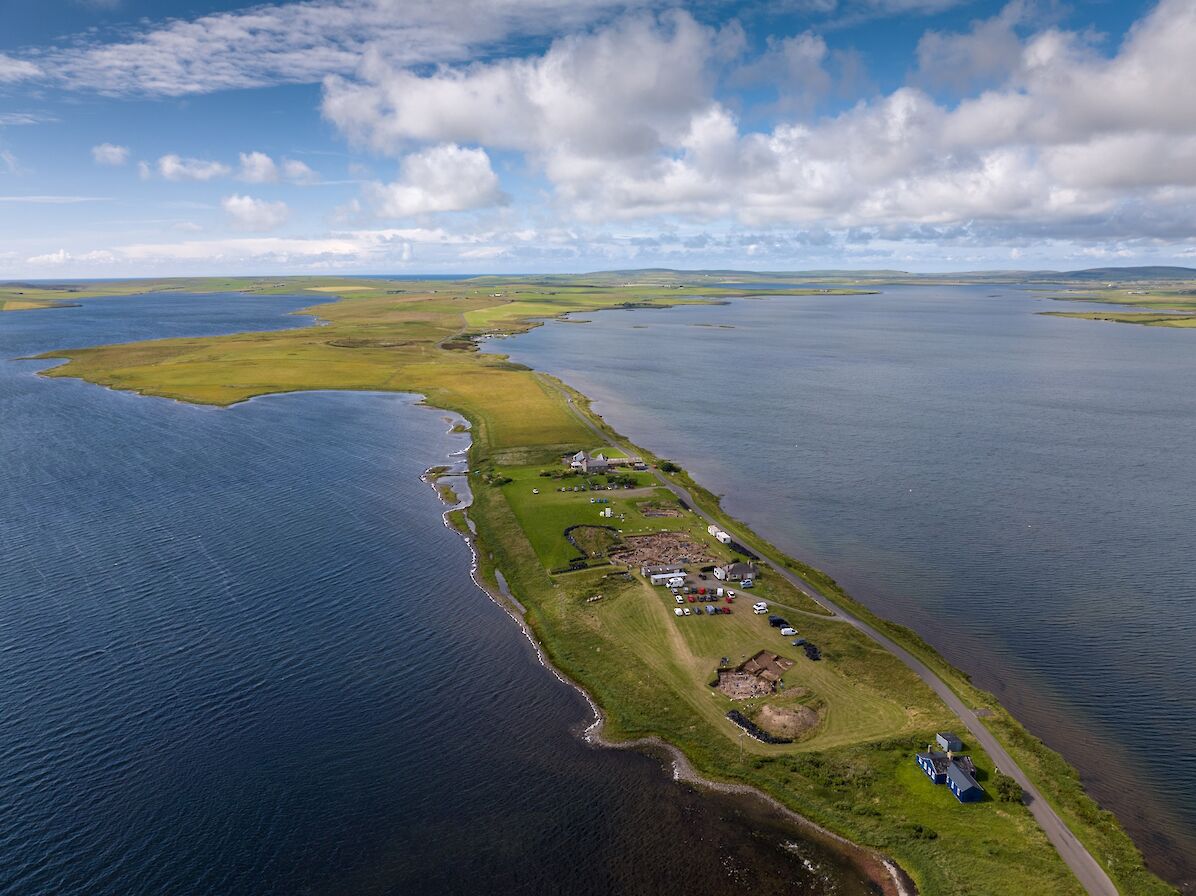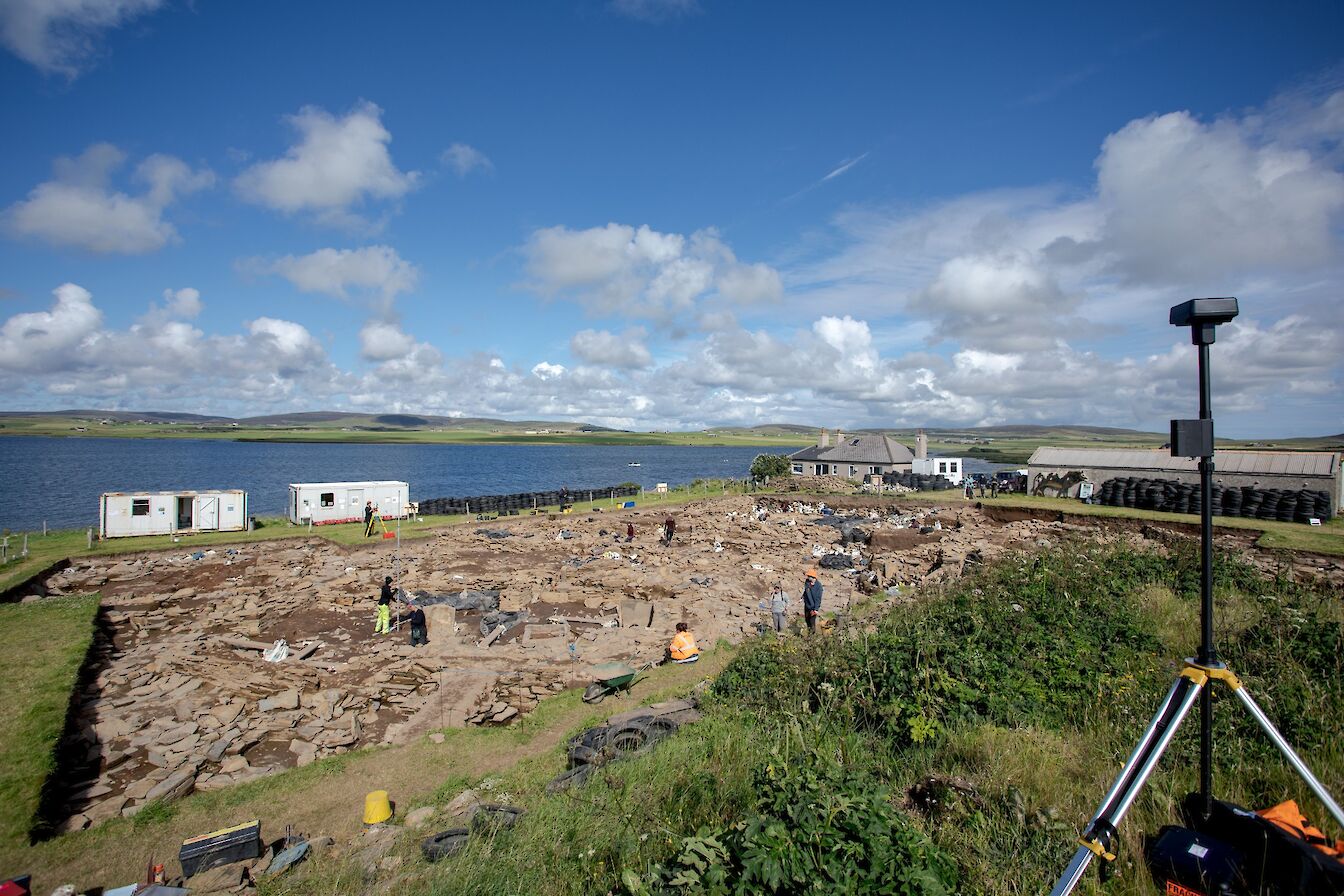After 20 years, excavation work at Orkney’s Ness of Brodgar will come to a close at the end of this week (16th August).
Over the last two decades, this sprawling dig in the heart of Orkney’s World Heritage Site has become one of the most important archaeological projects in the world. It has revealed a huge complex of Neolithic buildings covering three hectares, with more lying undisturbed across this ancient landscape.
Finds have included beautiful decorated and painted stones, polished axe heads, carved stone balls, and even human and animal bones. But more than that, the excavation has changed the way we think about Neolithic Orkney.
Before the 2024 dig began, it was decided that this summer season would be the last on site, with work reaching a logical stopping point. Instead of covering it with plastic wrap and tyres, ready for next year, the Ness of Brodgar will also be filled in with earth and returned to the green field it used to be, in hibernation once more. This will protect the fragile stonework here, which isn’t as durable as the beach stone used to build Skara Brae, giving the next generation of archaeologists the chance to dig down into the secrets of the Ness in the future.
The focus will move on to analysis and research of the finds taken from the site over the years, to help build on that understanding of ancient Orkney and its role in prehistory across northern Europe.
It will be strange to start next summer knowing that the Ness of Brodgar won’t be at the heart of things, for locals, visitors, and archaeologists. But this incredible site won’t be forgotten.
Find out more via the official Ness of Brodgar website.

